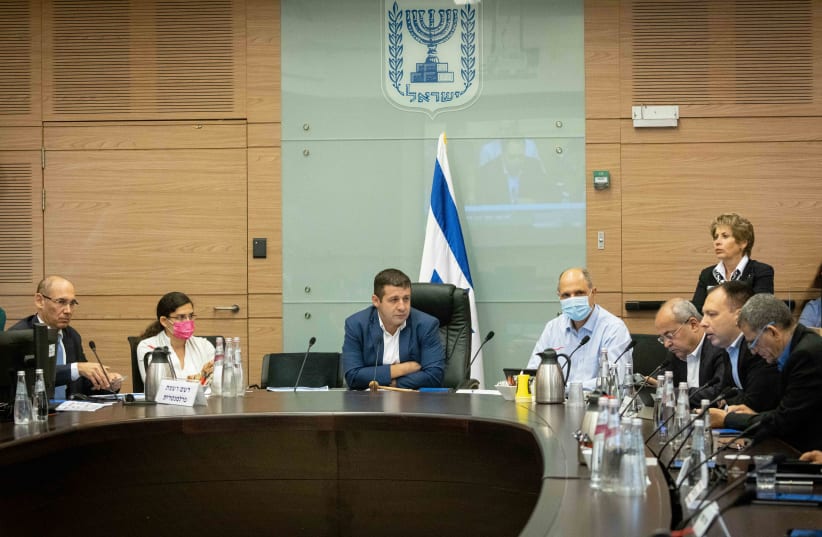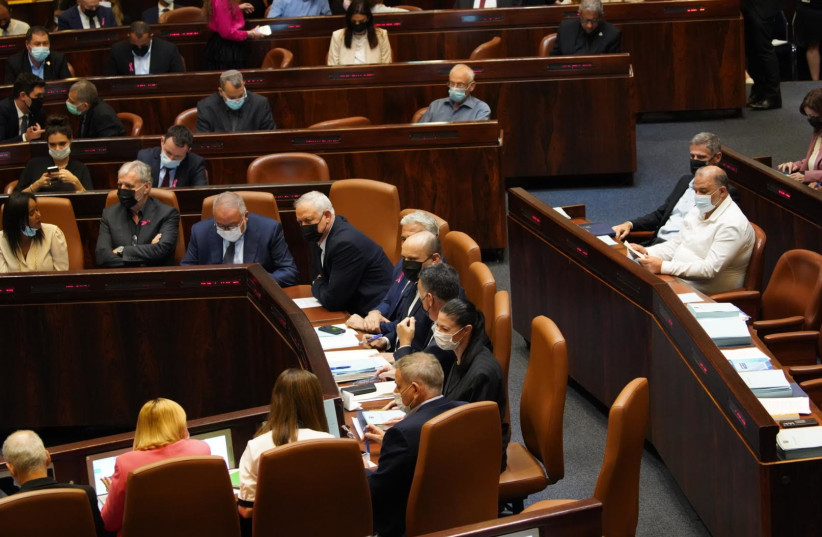The Knesset Finance Committee approved on Wednesday night the 2021 and 2022 Budget Laws for the second and third readings in Knesset.
After 6 hours of marathon debates, which included several hundred objections out of about 30,000 objections submitted by United Torah Judaism, Shas, the Joint List, the Religious Zionist Party and the Likud, a motion was made by committee chairman MK Alex Kushnir to reach a compromise with the opposition parties.
The compromise included about NIS 70 million in additional funds allocated for projects supported by the opposition, including funding for yeshivot, NIS 5m. to renovate hospitals in the periphery and NIS 3m. for development in the Galilee and Negev. There was also an agreement to amend legislation to reduce National Insurance payments for Israeli students studying at institutions abroad.
“We went through a very, very significant process here, especially for the state, when the last budget approved here was in March 2018,” Kushnir said, following the agreement. “This budget has a lot of good news, along with the Arrangements Law with a lot of reforms. I want to say thank you to the coalition members and the opposition members who appeared here for every discussion, despite the disagreements.”
The opposition blasted the coalition for allocating NIS 1.4 billion in so-called “coalition funding” for the causes of its parties and MKs. They singled out a NIS 12m. allocation for neutering and spaying street cats as particularly problematic.
Also Wednesday night, the regulatory reform, which would create a body to reduce regulation and bureaucracy in government offices, was approved by the Constitution, Law and Justice Committee chaired by MK Gilad Kariv. The measure is expected to save the economy between NIS 7b. and NIS 8b. a year, although some had opposed it due to fears that the creation of another government regulatory authority to cut down on regulation would interfere with the fundamental workings of the government.
On Thursday, the Joint Defense Budget Committee, headed by MK Ram Ben Barak, approved the defense component of the budget. For 2021, the Defense Ministry budget is NIS 62.357b., in addition to NIS 14.972b. in conditional expenditures and authorization to commit in the amount of NIS 36.3b. For 2022, the budget will be NIS 59.833b., in addition to NIS 15b. in conditional expenditures and authorization to commit in the amount of NIS 42.9b.
The committee spent some 50 hours on discussions related to payroll and manpower (including the issue of pensions), work plans, development, equipment and more.
The Knesset Finance and Economics committees have been hard at work in recent days approving the final chapters of the Economic Arrangements Law (EAL) needed to accompany the budget.
The government will formally submit the state budget to the Knesset on Sunday, with the goal of approving them in the second and third readings by the deadline of November 14 to prevent the Knesset from being automatically disbanded and elections from being initiated.
Debates on the budget will start Monday and voting Wednesday. The Knesset plenum will convene non-stop from Monday night until the budget is expected to pass into law late Thursday night or Friday morning. The EAL will purposely be passed first before the budget in order to keep MKs voting, out of concern that if the budget was passed first, the MKs would not stick around for the EAL, which includes controversial reforms.
The first of three readings of the EAL and budget was passed in the Knesset in September, before the holiday recess. The coalition made the decision to begin the final deliberations two weeks before the deadline to leave time to deal with unforeseen delays.
As Israel has not had a budget for more than three years, the one currently under debate is full of ambitious projects and reforms, including many that have been quite controversial. Among them are an agricultural reform that would increase competition in the market for eggs and produce; import reform that would allow more products to be sold in Israel at lower prices; an open banking reform that will make the banking sector more transparent; a plan to gradually raise the retirement age for women from 62 to 65; and much more.
Gil Hoffman contributed to this report.

